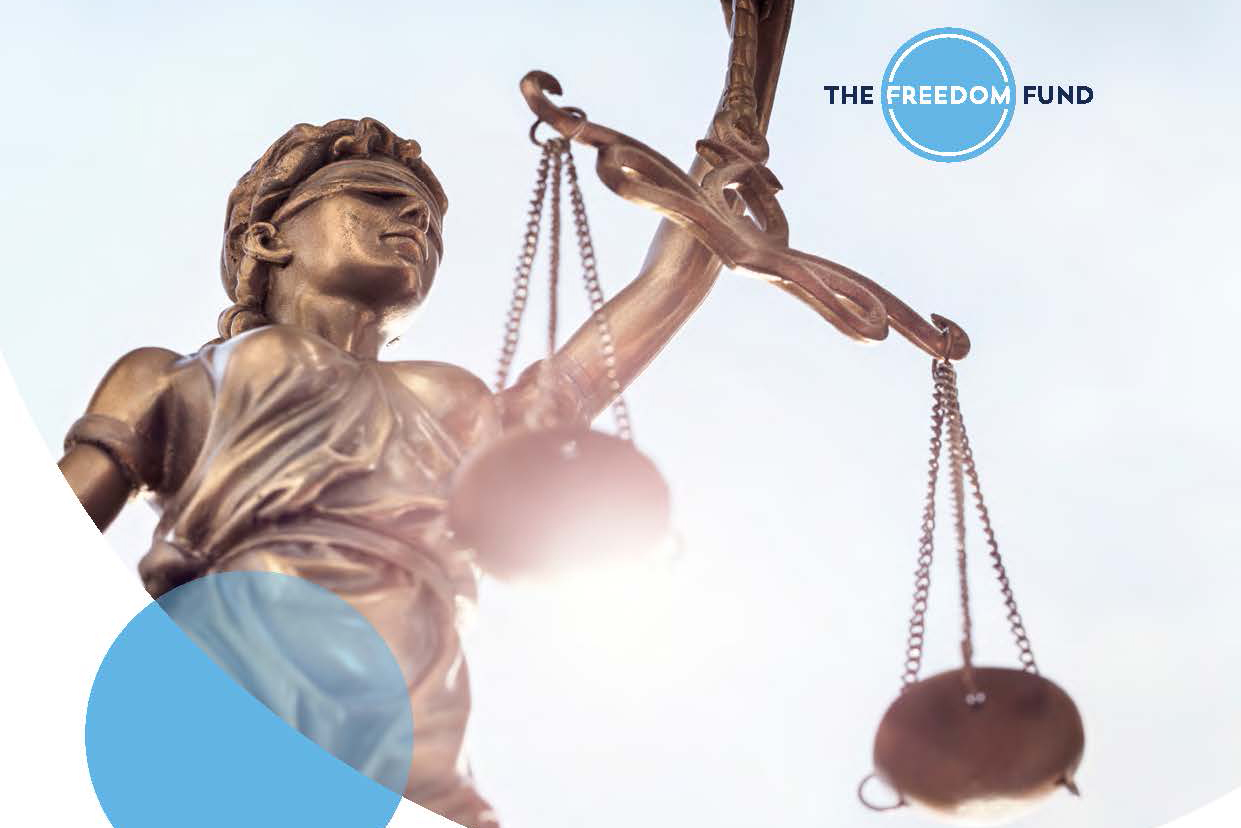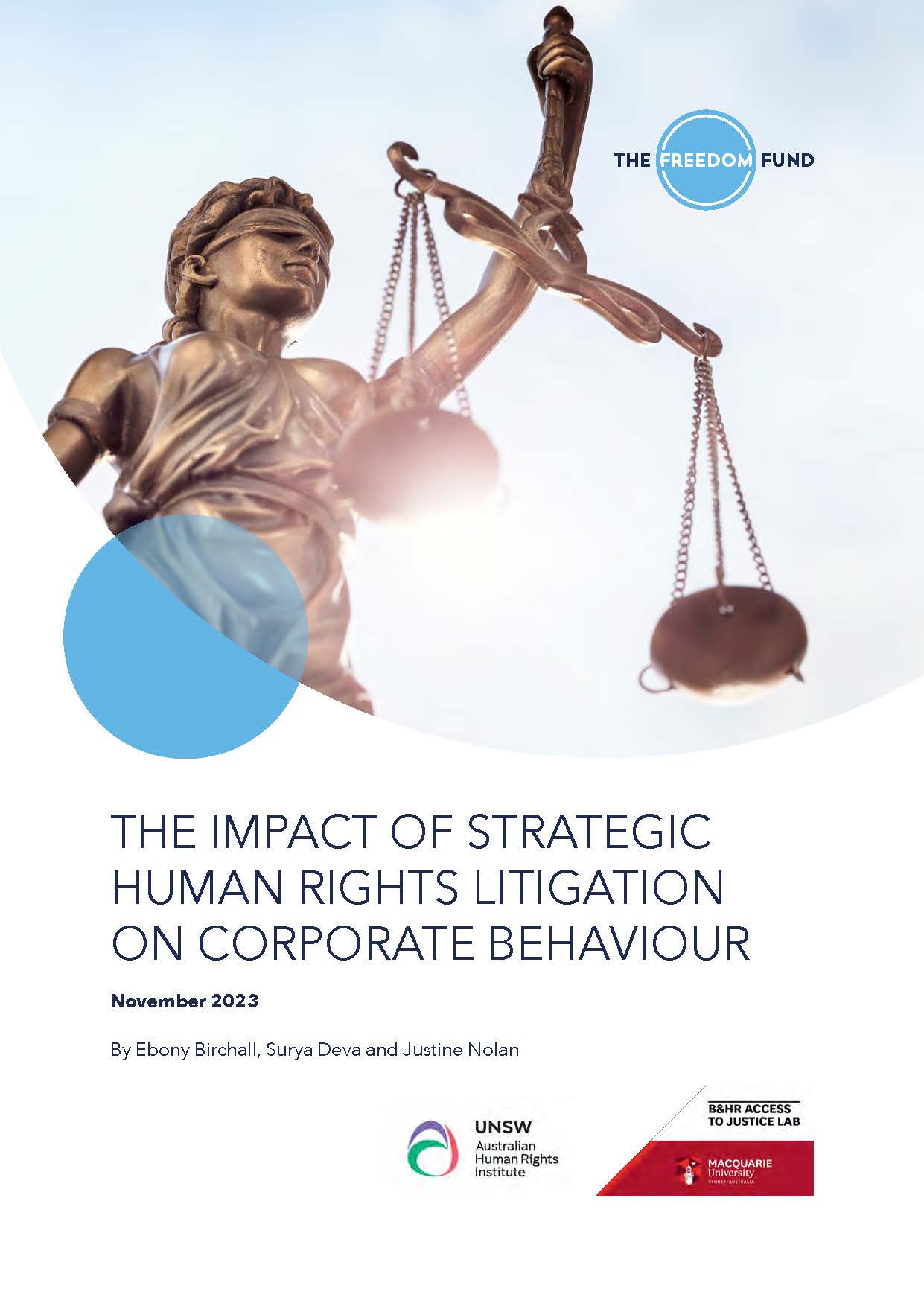By Marta Bylica, Program Manager, Corporate Accountability
Strategic litigation is recognised as a powerful tool to hold companies and governments accountable for their human rights and environmental violations. It empowers affected communities, workers, and survivors to demand and access remedy for the harms they have endured. When used strategically, human rights litigation can also trigger significant social, political, and legal changes, including shifting business practices beyond courtrooms and across entire industries.
This potential of strategic litigation is particularly attractive to many human rights funders – including the Freedom Fund – as we aim to apply pressure on companies to address their direct involvement and complicity in modern slavery, while, at the same time, catalysing large-scale systemic change.
Since 2015, the Freedom Fund’s Corporate Accountability initiative has supported more than 20 legal cases, ranging from preliminary research and gathering evidence to case filings, appeals, third-party interventions, and wrap-around support for rights-holders involved in litigation. One such case was Nevsun Resources Ltd. v. Araya, in which the Supreme Court of Canada held that Canadian companies operating abroad could face legal action in Canadian courts for violations of customary international law, including forced labour.
However, as we reflect on nearly a decade of supporting strategic human rights litigation, we recognise that beyond our grantees’ reports and isolated case studies, there is very little data about the extent to which strategic litigation influences corporate behaviour or what factors make a particular case impactful.
To address this evidence gap and help answer these important questions, we have commissioned research to assess the multifaceted effects of filing human rights cases against companies. The resulting report, published today, focuses on the impact on corporate conduct as well as the broader international ecosystem.
Authored by some of the world’s leading business and human rights experts – Professor Surya Deva, Professor Justine Nolan, and Dr Ebony Birchall – the report sheds light on the complexity of establishing clear, causal links between legal proceedings and companies’ actions, and reveals important considerations for initiators of human rights litigation, corporations, governments, and funders.
Drawing from extensive desk research and interviews with key stakeholders, the report explores how strategic litigation can be harnessed as a tool to advance corporate respect for human rights, and shares key lessons learned in weighing up the potential impacts and risks of such litigation.
In summary, the report recognises many examples of successful use of litigation to promote human rights and shape corporate behaviour, but it also acknowledges the gradual and uneven systemic impact of strategic litigation on corporate behaviour. The authors find that litigation is generally more impactful when consciously used in conjunction with other complementary strategies, such as civil society advocacy, media campaigns, complaints to regulatory bodies, and broader engagement with stakeholders who can influence corporations, including investors and consumers.
An important contribution of the research is the development of an original Impact Framework, grouping impacts into positive and negative categories and breaking them down into indicators that can be used both prospectively and retrospectively to assess outcomes in a holistic and systemic manner.
On a practical level, the report identifies six key strategies and variables to maximise the desired impacts of litigation. These are: (1) selecting the ‘right case’ – taking into account variables such as the public profile and culture of the company, suitability of the forum, and access to evidence; (2) evaluating and managing negative risks of litigation; (3) collaborating with reliable partners; (4) managing expectations and competing goals; (5) employing complementary redress mechanisms; and (6) securing sustainable funding.
We hope this research will serve as a useful framework for legal practitioners, civil society, academics, and donors interested in corporate accountability, informing discussions about the most effective means of harnessing litigation to advance corporate respect for human rights.
The Freedom Fund remains steadfast in our commitment to supporting strategic litigation and fostering a more interconnected global corporate accountability ecosystem with an emphasis on the meaningful involvement and leadership of rights-holders.
To access the report, please click below.




